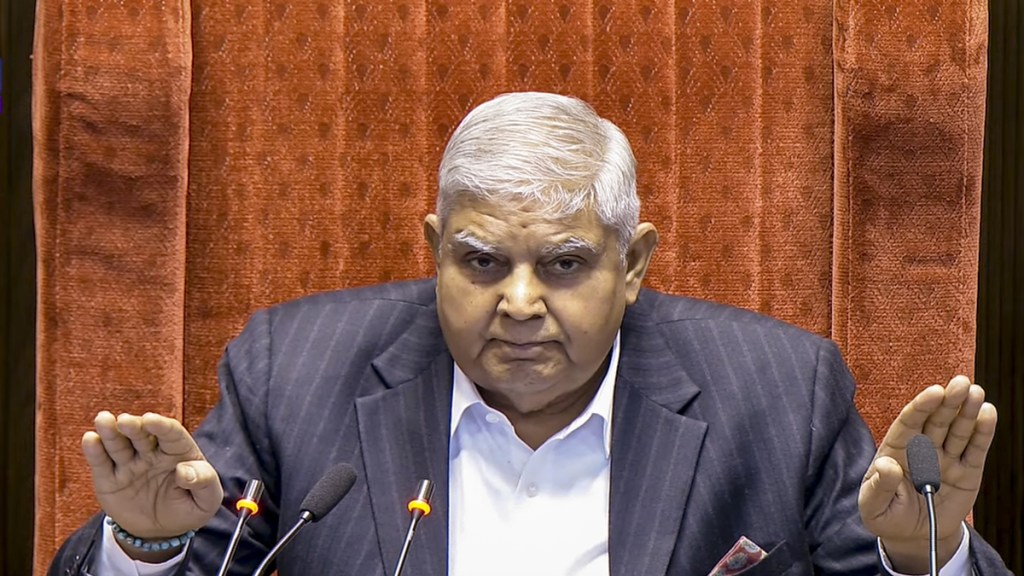Vice President Jagdeep Dhankhar insisted on Thursday that the Indian judiciary should not be able to ‘direct’ the President — deeming Article 142 “a nuclear missile against democratic forces”. The remarks came days after the Supreme Court of India issued a landmark judgement calling for Presidents and Governors to clear pending Bills within a three month deadline. He also proposed an amendment to 145(3) which deals with the composition of the bench required to decide substantial questions of constitutional law.
“We never bargained for democracy for this day. President being called upon to decide in a time-bound manner, and if not, becomes law. So we have judges who will legislate, who will perform executive functions, who will act as super-parliament, and absolutely have no accountability because law of the land does not apply to them…We cannot have a situation where you direct the President of India,” reports quoted him as saying.
The Supreme Court of India had issued a landmark judgement last week, setting a three-month deadline for the President to decide on Bills reserved for consideration by the Governor. The unprecedented judgement came days after the apex court court cleared 10 bills that had been stalled and reserved by Tamil Nadu Governor R N Ravi for the consideration of President Droupadi Murmu. Dhankhar however insisted that the judges who had “issued a mandamus virtually to the President and presented a scenario that it would be the law of the land have forgotten the power of the Constitution”.
Dhankhar also questioned the basis of such verdicts — noting that the judiciary could only interpret interpret the Constitution under Article 145(3) with a bench of five judges or more.
“How can that combination of judges deal with something under Article 145(3) if preserved, it was then for five out of eight. We also need to make amends for that now. Five out of eight would mean interpretation will be by majority. Well, five constitutes more than the majority in eight. But leave that aside. Article 142 has become a nuclear missile against Democratic forces, available to the judiciary 24 x 7,” Dhankar said.
A bench of Justices JB Pardiwala and R Mahadevan had ruled on April 8 that Tamil Nadu Governor RN Ravi’s decision to withhold 10 bills and reserve them for the President’s assent was “illegal and erroneous in law” and liable to be set aside. The Court also observed that the Governor must act based on the aid and advice of the State Legislature.

